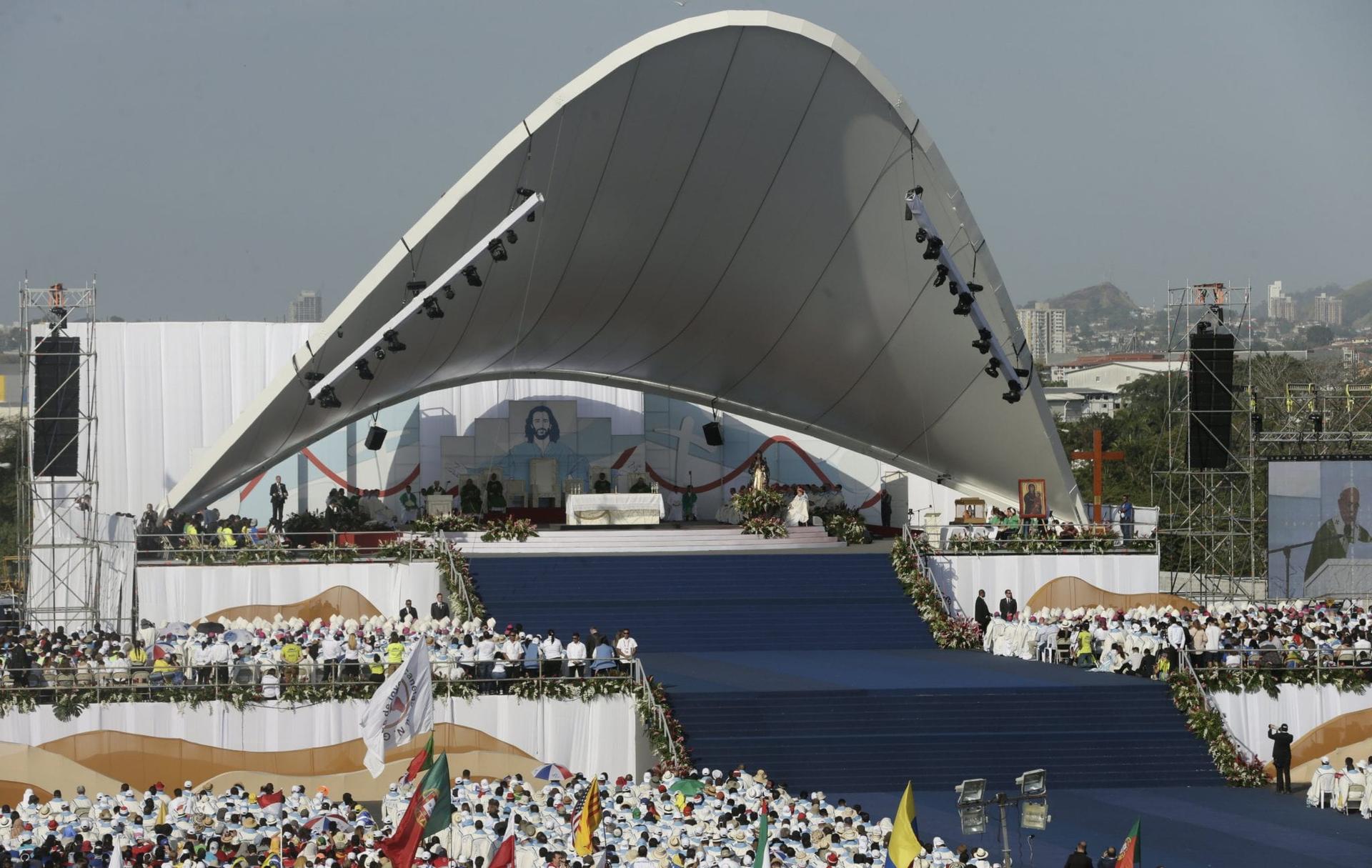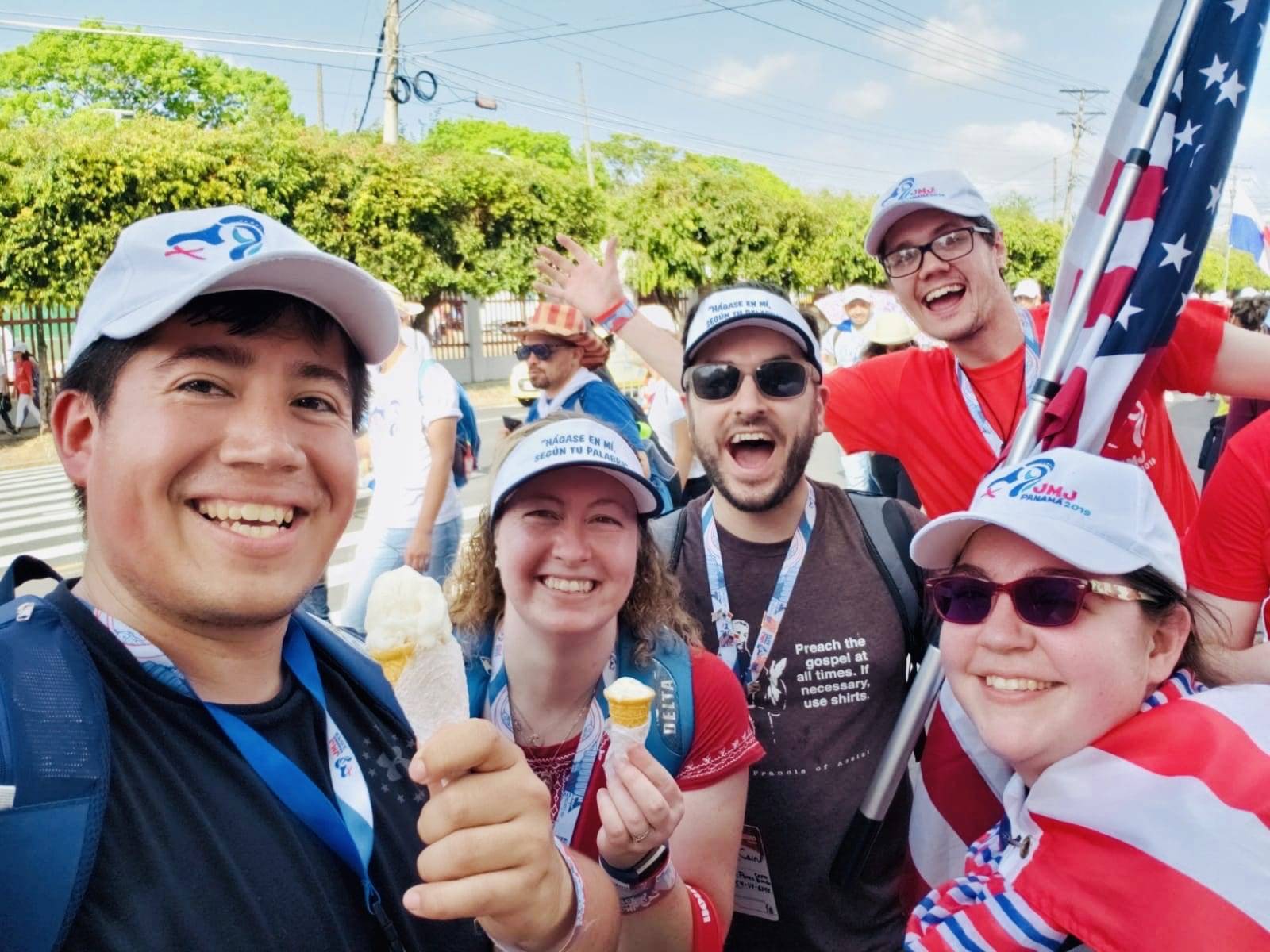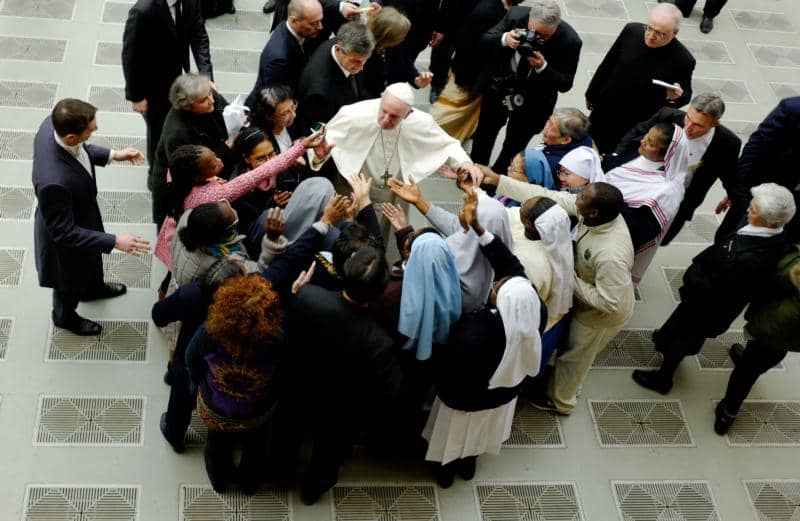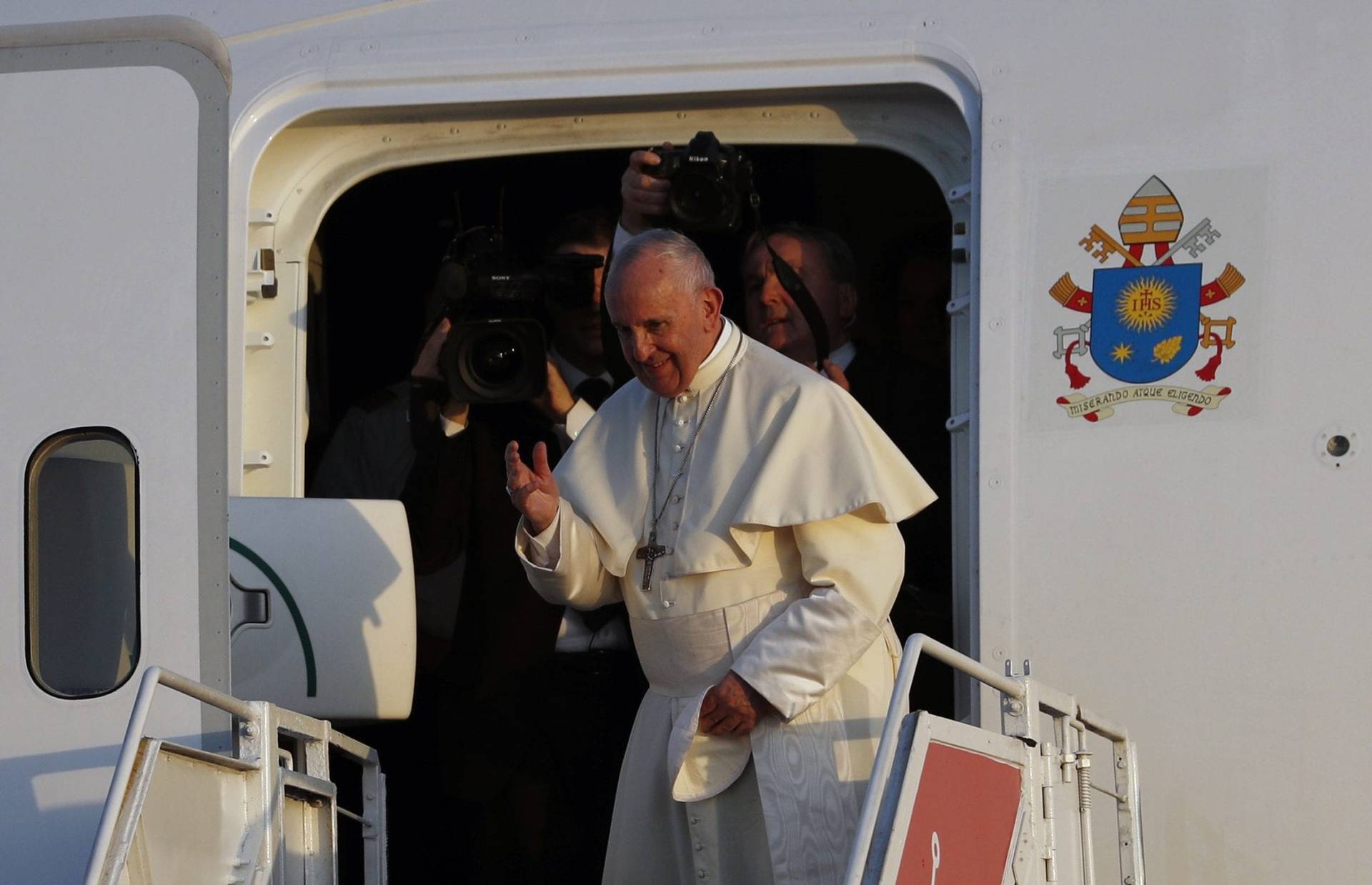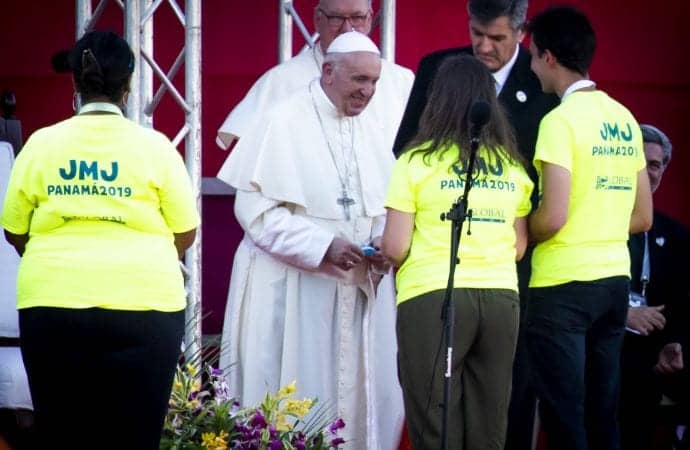PANAMA CITY — After staying away from the news cycle during his Jan. 23-27 visit to Panama, Pope Francis on Sunday addressed several news items, from International Holocaust Remembrance Day to Venezuela.
“Here in Panama, I’ve thought a lot about the grave situation that the country is going through,” he said of Venezuela, currently in turmoil after the head of the National Assembly was sworn in as interim president as the pontiff was en route to Panama.
He said he hopes for a “fair and peaceful solution” to the country’s political crisis, respecting the “human rights of all the inhabitants of dear Venezuela.”
Nicolas Maduro, the successor of Hugo Chavez, was sworn in for another term earlier this month after national elections labeled as “fraudulent” by many in the international community. Opposition leader Juan Gaido, who’s claimed leadership, has said he will “never resign” the presidency.
The pope also referred to a terrorist attack in the Philippines on the southern island of Jolo, where two bombs at a local cathedral during Sunday Mass killed some 20 people and wounded over 80.
Jolo Island has long been troubled by the presence of Abu Sayyaf militants, blacklisted by the United States and the Philippines as a terrorist organization due to bombings, kidnappings and beheadings.
On Sunday, the pontiff asked for prayers for all those who died.
Francis also spoke about International Holocaust Remembrance Day, marked on Sunday, saying that it’s necessary to keep alive the memory of the past so that the same mistakes are not repeated.
“We need to maintain the memory of the past alive and learn from the black pages of history so as not to make the same mistakes again,” Francis said on Sunday. “Let’s continue to work, without rest, in cultivating justice, increasing concord and sustaining integration, to be instruments of peace and builders of a better world.”
Francis also prayed for Friday’s “tragedy” in Brazil, meaning the breaking of a dam that led to some 50 people dying and over 200 missing in a mud avalanche.
“I entrust in God’s mercy all those who died, while at the same time I express my affection and spiritual closeness to their families and the entire population of Minas Gerais.”
Last but not least, he referred to 14 policemen from Colombia, who were killed in a terrorist attack in Colombia earlier this month.
The pope’s remarks came at the end of the traditional Angelus prayer, which instead of taking place in St. Peter’s as it does every Sunday, happened in the Good Samaritan Home in Panama City. Francis arrived in Panama on Wednesday to participate in the Vatican-sponsored World Youth Day, an itinerant Catholic gathering that takes place every two or three years.
His visit to the center for people with disabilities and HIV/AIDS was his penultimate official event, and the 10th speech of his visit.
Before the Angelus, his words had a much more pastoral tone, and were addressed to those who live in the Good Samaritan Home in Panama City. To them, Francis said that being in their midst, among the disabled and people with HIV/AIDS who are being tended to in various Catholic centers gives Francis a “reason for renewed hope.”
“This home, and all the centers you represent, are a sign of the new life that the Lord wants to give us,” Francis said. “It is easy to confirm the faith of some of our brothers and sisters when we see it at work in anointing wounds, renewing hope and encouraging faith.”
The pontiff also said that the so-called “primary beneficiaries” of homes such as the one he was visiting are not the only ones who are reborn here: “here the Church and the faith are also born and continually recreated through love.”
Also present during the pope’s visit were young people from the John Paul II Centre, the Saint Joseph Home of the Sisters of Charity and the “House of Love” of the Congregation of the Brothers of Jesus of Kkottonngae.
When he visited South Korea, Francis visited a Kkottonngae home and prayed for several minutes in front of a cemetery for children lost to abortion.
